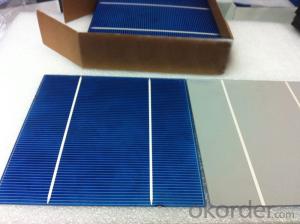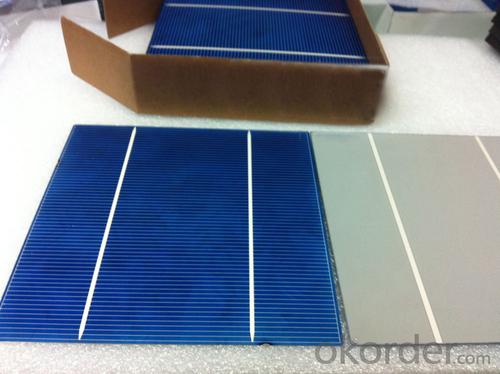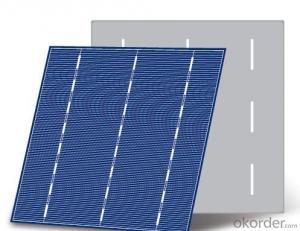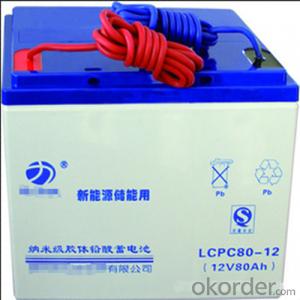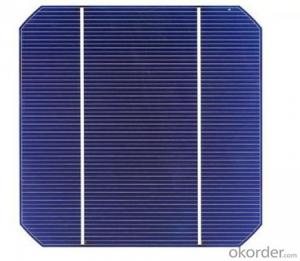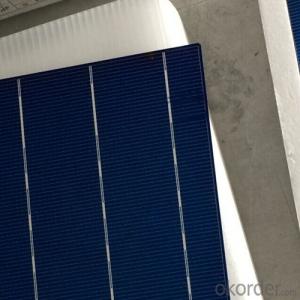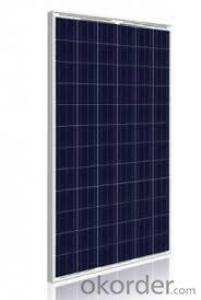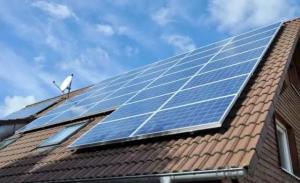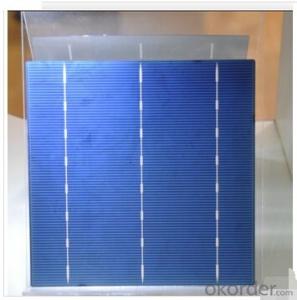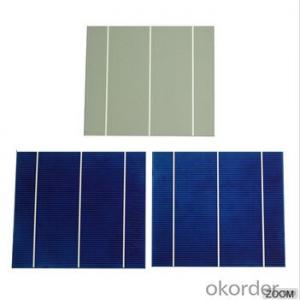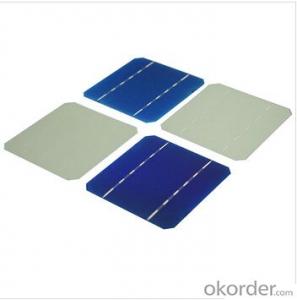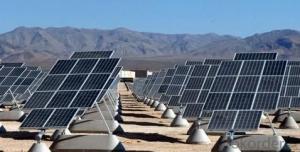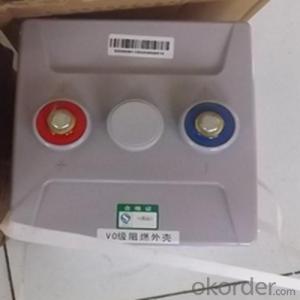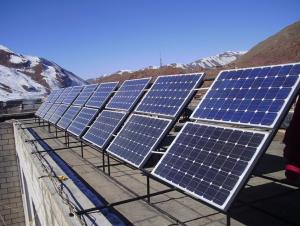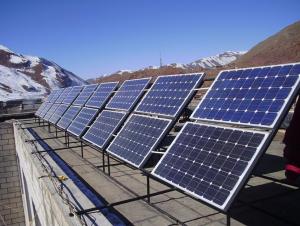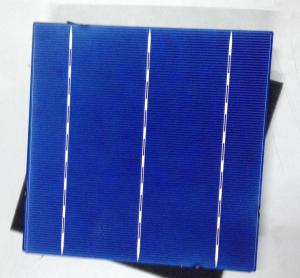High Quality Cadmium Telluride CdTe Solar Cells Poly-10% Effy
- Loading Port:
- China Main Port
- Payment Terms:
- TT OR LC
- Min Order Qty:
- -
- Supply Capability:
- -
OKorder Service Pledge
Quality Product, Order Online Tracking, Timely Delivery
OKorder Financial Service
Credit Rating, Credit Services, Credit Purchasing
You Might Also Like
Specifications
1. High efficiency and High power.
2. Long-term electrical stability.
3. Lowest price and Fastest delivery.
4. Good quality.
Advantage:
1. High efficiency and High power.
2. Long-term electrical stability.
3. Lowest price and Fastest delivery.
4. Good quality and good service.
5.Bulk supply
6. Good Warranty
7.Big Sale
8.Made in Taiwan/Germany etc for high quality
9.More than 35 years on the lifetime.
10 DHL/Fedex/UPS/TNT/EMS etc
11 No anti-dumping tax
- Q: What is the impact of solar cells on reducing energy waste?
- Solar cells have a significant impact on reducing energy waste as they harness clean and renewable energy from the sun, thus reducing the need for fossil fuels. By converting sunlight into electricity, solar cells provide a sustainable and environmentally friendly alternative, reducing greenhouse gas emissions and dependence on non-renewable energy sources. This helps combat climate change and promotes a more efficient use of energy, ultimately decreasing energy waste.
- Q: How to make solar cells in a scientific way?
- Follow the scientific instructions, then you will learn how to make it.
- Q: How do solar cells perform in high altitude regions?
- Solar cells perform well in high altitude regions due to several factors. Firstly, at higher altitudes, there is typically less atmospheric pollution, which means that the sunlight reaching the solar cells is relatively cleaner and more intense. This allows solar cells to generate more electricity. Additionally, high altitude regions often have lower temperatures, which can enhance the performance of solar cells as they operate more efficiently in cooler environments. Lastly, the reduced air density at higher altitudes can result in less scattering of sunlight, further increasing the efficiency of solar cells. Overall, the combination of cleaner sunlight, cooler temperatures, and reduced scattering make solar cells highly effective in high altitude regions.
- Q: What is the role of solar cell inverters in grid-tied systems?
- The role of solar cell inverters in grid-tied systems is to convert the direct current (DC) energy generated by solar panels into alternating current (AC) energy that is compatible with the electrical grid. These inverters ensure that the solar energy produced by the panels can be used to power appliances and devices in homes or businesses, and any excess energy can be fed back into the grid for others to use. Additionally, solar cell inverters also provide important safety features, such as isolating the solar system from the grid during power outages to protect utility workers.
- Q: Can solar cells be used for powering electric vehicle charging stations with battery storage?
- Yes, solar cells can be used to power electric vehicle charging stations with battery storage. Solar cells convert sunlight into electricity, which can be used to charge electric vehicle batteries directly or stored in batteries for later use. This allows for a cleaner and sustainable way to power electric vehicle charging stations, reducing dependence on fossil fuels.
- Q: How do solar cells impact the local economy?
- Solar cells can have a positive impact on the local economy in several ways. Firstly, the installation and maintenance of solar panels create job opportunities, stimulating employment and income growth within the community. Additionally, solar energy reduces the reliance on imported fossil fuels, leading to reduced energy costs for local businesses and residents. This, in turn, frees up funds that can be reinvested in the local economy, fostering economic development. Moreover, solar power can also generate revenue for local governments through tax incentives and property value increases. Overall, solar cells contribute to a more sustainable and prosperous local economy.
- Q: How do solar cells affect the electric grid?
- Solar cells can have a significant impact on the electric grid by generating clean and renewable energy. When connected to the grid, solar cells produce electricity during the day, reducing the overall demand for power from traditional sources. This reduces the strain on the grid and decreases the need for fossil fuel-based power plants. Additionally, excess solar energy generated by these cells can be fed back into the grid, providing a source of power for others and contributing to a more resilient and sustainable energy system.
- Q: What is the largest solar cell installation in the world?
- The largest solar cell installation in the world is the Tengger Desert Solar Park in China, with a capacity of 1.5 gigawatts.
- Q: What is the impact of dust and dirt on solar cell performance?
- Dust and dirt can significantly impact the performance of solar cells. When dust and dirt accumulate on the surface of solar panels, they reduce the amount of sunlight that reaches the cells, resulting in a decrease in energy production. The presence of dust and dirt also creates a layer on the surface, which can cause hotspots and increase the temperature of the solar cells, further reducing their efficiency. Regular cleaning and maintenance are essential to maximize the performance and lifespan of solar cells.
- Q: Whether the solar cell is light can produce electricity
- Solar cells, also known as "solar chips" or "photovoltaic cells", is a direct use of solar photovoltaic power semiconductor thin film.
Send your message to us
High Quality Cadmium Telluride CdTe Solar Cells Poly-10% Effy
- Loading Port:
- China Main Port
- Payment Terms:
- TT OR LC
- Min Order Qty:
- -
- Supply Capability:
- -
OKorder Service Pledge
Quality Product, Order Online Tracking, Timely Delivery
OKorder Financial Service
Credit Rating, Credit Services, Credit Purchasing
Similar products
Hot products
Hot Searches
Related keywords
